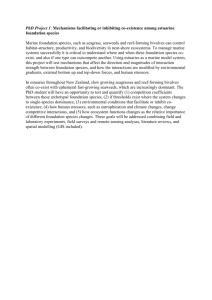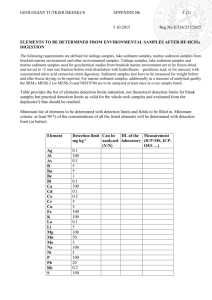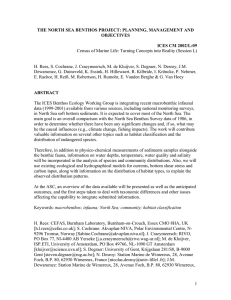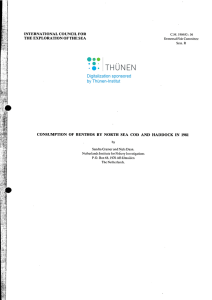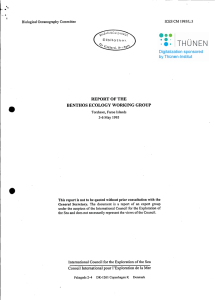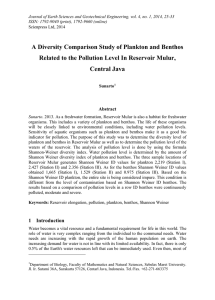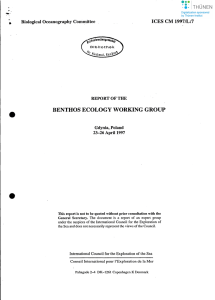Living in multi-stressed sediments: behavioral consequences
advertisement
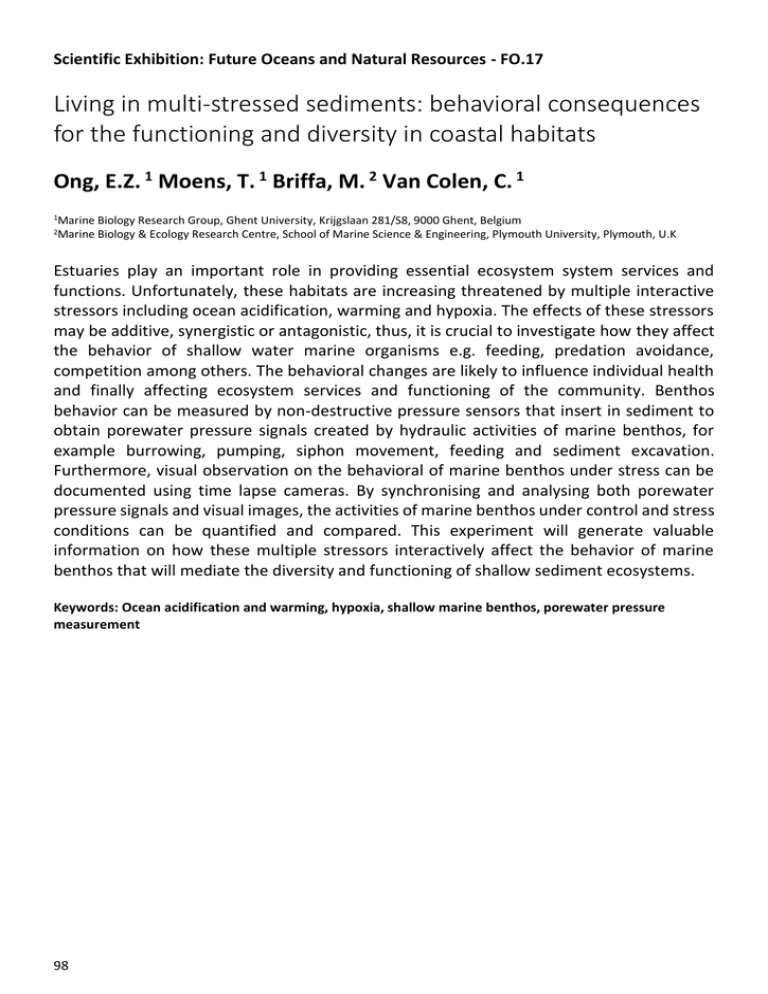
Scientific Exhibition: Future Oceans and Natural Resources - FO.17 Living in multi-stressed sediments: behavioral consequences for the functioning and diversity in coastal habitats Ong, E.Z. 1 Moens, T. 1 Briffa, M. 2 Van Colen, C. 1 1Marine 2Marine Biology Research Group, Ghent University, Krijgslaan 281/S8, 9000 Ghent, Belgium Biology & Ecology Research Centre, School of Marine Science & Engineering, Plymouth University, Plymouth, U.K Estuaries play an important role in providing essential ecosystem system services and functions. Unfortunately, these habitats are increasing threatened by multiple interactive stressors including ocean acidification, warming and hypoxia. The effects of these stressors may be additive, synergistic or antagonistic, thus, it is crucial to investigate how they affect the behavior of shallow water marine organisms e.g. feeding, predation avoidance, competition among others. The behavioral changes are likely to influence individual health and finally affecting ecosystem services and functioning of the community. Benthos behavior can be measured by non-destructive pressure sensors that insert in sediment to obtain porewater pressure signals created by hydraulic activities of marine benthos, for example burrowing, pumping, siphon movement, feeding and sediment excavation. Furthermore, visual observation on the behavioral of marine benthos under stress can be documented using time lapse cameras. By synchronising and analysing both porewater pressure signals and visual images, the activities of marine benthos under control and stress conditions can be quantified and compared. This experiment will generate valuable information on how these multiple stressors interactively affect the behavior of marine benthos that will mediate the diversity and functioning of shallow sediment ecosystems. Keywords: Ocean acidification and warming, hypoxia, shallow marine benthos, porewater pressure measurement 98


